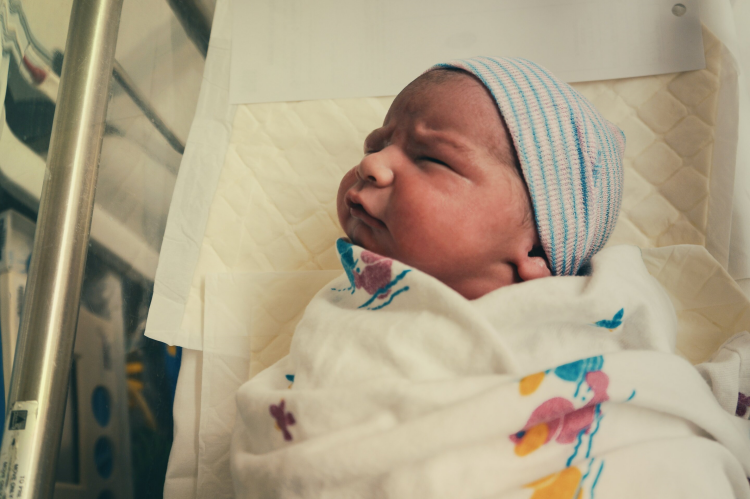Gambiaj.com – (BANJUL, The Gambia) – A groundbreaking study in the Gambia reveals that a genetic signature in newborns can accurately predict neonatal sepsis even before any symptoms appear. Led by researchers from UBC and Simon Fraser University (SFU), in collaboration with the Medical Research Council (MRC) Unit The Gambia, this research holds immense promise for early diagnosis, particularly in lower- and middle-income countries (LMICs) where neonatal sepsis poses a significant threat.
Published in eBiomedicine, this vital research is supported by funding from the National Institutes of Health and the Canadian Institutes of Health Research, paving the way for improved healthcare outcomes for vulnerable infants.
“Neonatal sepsis is caused by the body’s irregular response to a severe infection that occurs within the first 28 days of life. Globally, it affects around 1.3 million babies annually, and unfortunately, in LMICs, those rates are higher,” said first author Andy An, a UBC MD/PhD student who completed the research as a doctoral student in the department of microbiology and immunology.
“Even when treatment is successful, sepsis can have lifelong effects because it can lead to developmental delay in children, imposing cognitive deficits and long-term health issues. By recognizing it as early as possible, we can treat infants promptly and, ideally, head off these harms.”
Neonatal sepsis claims around 200,000 lives globally each year, predominantly in low- and middle-income countries (LMICs). In Canada, while the risk is lower—about one in 200 live births—it remains a significant threat for premature infants.
Diagnosing sepsis poses a considerable challenge for healthcare professionals and families alike. Symptoms often mimic those of other common illnesses, and the diagnostic tests for sepsis can take days to return results, making them unreliable and mostly accessible only in hospitals. This uncertainty can lead to potentially life-threatening delays in crucial antibiotic treatment.
“Knowing that sepsis is impending would also allow physicians more time to determine the appropriate treatment to use,” said co-senior author Dr. Bob Hancock, professor in the UBC Department of Microbiology and Immunology. “The consequences of neonatal sepsis are so severe in the most vulnerable individuals that providing an early diagnosis to assist and guide physicians could save lives.”
Researchers conducted an important study in The Gambia, collecting blood samples from 720 newborns. Alarmingly, 15 of these infants developed early-onset sepsis.
To address this critical issue, the researchers leveraged machine learning to analyze gene expression data from birth, seeking to uncover biological markers that could reliably predict the onset of sepsis. This innovative approach holds the potential to improve early identification and treatment, saving lives.
“We found four genes that, when combined in a ‘signature,’ could accurately predict sepsis in newborns nine times out of 10,” said co-senior author Dr. Amy Lee, assistant professor in the SFU Department of Molecular Biology and Biochemistry. “This was a unique opportunity where samples were available from all babies in this cohort on the day of birth, meaning we could study the genes expressed in the sepsis babies before they got sick. Most other studies had only published markers that were present when the babies were already ill, and this would, therefore, not be a predictive signature.”
“The early recognition of sepsis is vital for infants’ survival, and identifying markers that might allow us to ‘predict’ babies at particular risk would be an enormous advantage since we could then target specific surveillance and treatment of such infants,” said Dr. Beate Kampmann, who led the clinical component of the study at the MRC Unit in The Gambia.
The researchers are excited about the potential of their signature to revolutionize not just PCR tests in hospitals but also to be integrated into portable, point-of-care devices.
“There are point-of-care devices available that can test for gene expression, for instance, COVID-19 and influenza, with a single drop of blood. They can operate anywhere with a power source, including batteries, and can be used by anyone, not just trained healthcare providers,” said Dr. Hancock. “These portable devices could be retooled to recognize this ‘signature’ relatively easily and inexpensively.”
The next crucial phase of the research involves conducting a large prospective study to validate that the signature can reliably predict sepsis across diverse populations, proving its methodology. Following this, the focus will shift to developing point-of-care tools and seeking approval from the appropriate government bodies to bring these innovations to the forefront of healthcare.
Source: eBioMedicine Journal (2024)










